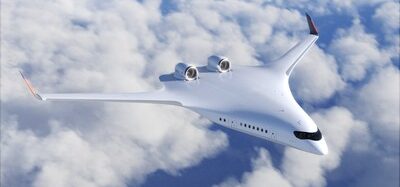Manchester become first UK airport to achieve carbon neutral status
- Like
- Digg
- Del
- Tumblr
- VKontakte
- Buffer
- Love This
- Odnoklassniki
- Meneame
- Blogger
- Amazon
- Yahoo Mail
- Gmail
- AOL
- Newsvine
- HackerNews
- Evernote
- MySpace
- Mail.ru
- Viadeo
- Line
- Comments
- Yummly
- SMS
- Viber
- Telegram
- Subscribe
- Skype
- Facebook Messenger
- Kakao
- LiveJournal
- Yammer
- Edgar
- Fintel
- Mix
- Instapaper
- Copy Link
Posted: 8 December 2016 | International Airport Review | No comments yet
Manchester Airport has become the first in the UK to be awarded Level 3+ carbon neutral status by the Airports Council International’s (ACI) Airport Carbon Accreditation programme…


Manchester Airport has become the first in the UK to be awarded Level 3+ carbon neutral status by the Airports Council International’s (ACI) Airport Carbon Accreditation programme.


The accolade was handed over by ACI Europe’s Director General, Olivier Jankovec, who met with Manchester Airport’s CEO, Ken O’Toole, to celebrate the UK first in Terminal One.
Over the last decade the airport has significantly reduced the energy it uses, saving the same amount of energy as used by 10,000 homes each year. In addition, the airport purchases all of its electricity from renewable sources. To compensate for remaining emissions, the airport has also purchased verified carbon offsets.
Collectively, these initiatives have reduced emissions from the energy and fuel used to operate the terminals, runways and facilities at Manchester Airport from 72,000 tonnes CO2 in 2006 to zero in 2016.
Manchester Airport has invested more than £7.5 million in energy efficiency projects, working with local and national businesses to develop innovative lighting solutions. The award winning energy management team have now installed more than 25,000 low energy LED lights throughout the airport, including the first on any UK runway.
This achievement not only showcases emissions reduced by the airport, but also the work done by Manchester Airport with its partners to reduce emissions from aircraft as well as passengers and staff travelling to and from the airport.
Ken O’Toole said: “At Manchester Airport we are committed to being one of the leading European airports when it comes to environmental management. We are proud of our track record. After a decade of hard work to reduce the amount of energy we use, I am pleased to be the first UK airport to be recognised by Airport Carbon Accreditation as carbon neutral.
“As an organisation we recognise that climate change is an important global challenge, with aviation contributing around 2% of international carbon emissions each year. This achievement demonstrates the lengths we go to ensuring we balance our role as economic generator, alongside caring for the environment, whilst working with our third parties to reduce the wider impact of our industry.”
ACI Europe’s Olivier Jankovec said: “Congratulations to all the team at Manchester Airport on this achievement. Becoming carbon neutral is no small feat and today actually serves as a timely reminder of how much work Manchester Airport has put into achieving this goal.
“They were one of the airports that participated in the pilot phase of the programme and they have worked their way up through the 4 levels of the programme over the intervening years – we actually launched Airport Carbon Accreditation here in Manchester at our Annual Congress in 2009. So, it really is a red-letter day for Manchester Airport, for the programme and for air transport in the UK.”
Airport Carbon Accreditation was developed by ACI Europe and has since been rolled out to other global ACI Global Regions. It is specific to airports, and at the levels 3 and 3+ in addition to requiring a reduction in the airport’s own emissions, also requires that airports monitor emissions from third party operations (including aircraft on the ground), and to work with business partners to reduce their emissions too. It is supported by the United Nations Framework Convention on Climate Change (UNFCCC), with airports at Level 3+ (neutrality) entitled to use the UN’s ‘Climate Neutral Now’ logo.
The ACI is the only global trade representative of the world’s airports. Established in 1991, ACI represents airports interests with Governments and international organisations such as ICAO, develops standards, policies and recommended practices for airports, and provides information and training opportunities to raise standards around the world.
The announcement comes the same week as analysis by Sustainable Aviation has shown that aviation in the UK can accommodate a more than doubling of passenger numbers by 2050 without significantly increasing CO2 emissions, and has the potential to halve emissions in the future. The analysis takes into account additional runway capacity in the South East, as well as increased demand across the rest of the country. The research shows that by 2050 aviation emissions are expected to be around 2005 levels, broadly in line with levels recommended by the Committee on Climate Change.
Related topics
Airport Carbon Accreditation (ACA), Emissions, Sustainability
Related organisations
Airports Council International Europe (ACI Europe), Manchester Airports Group (MAG)


















